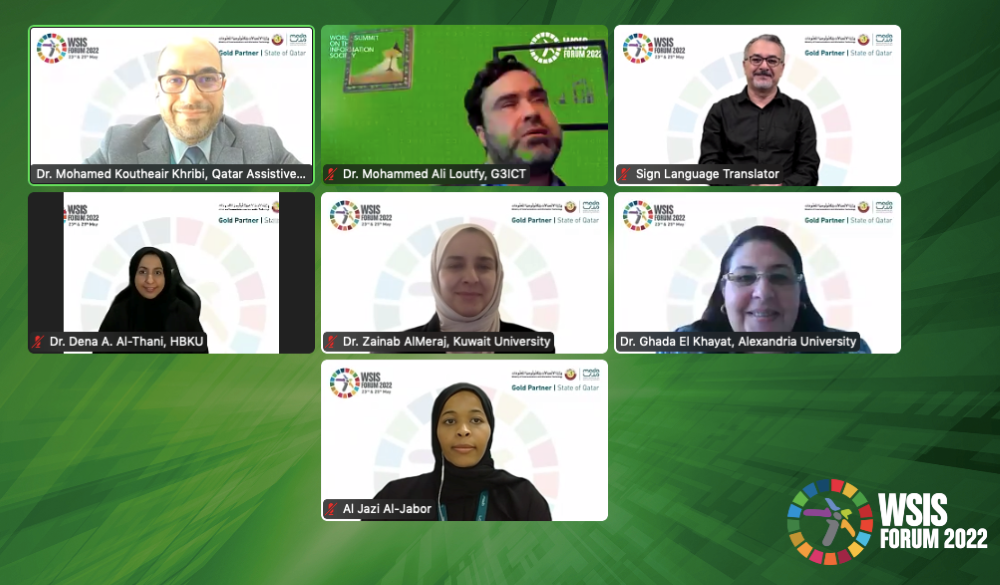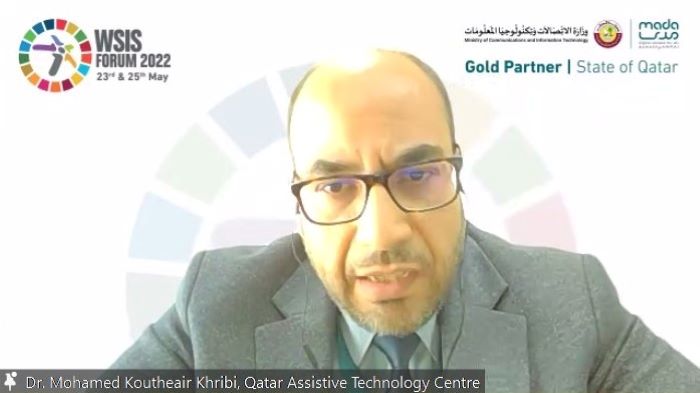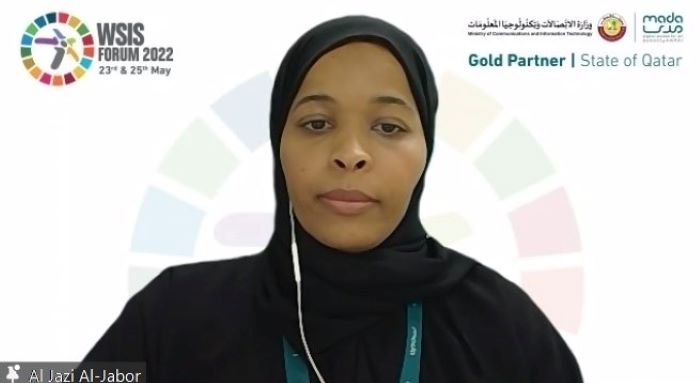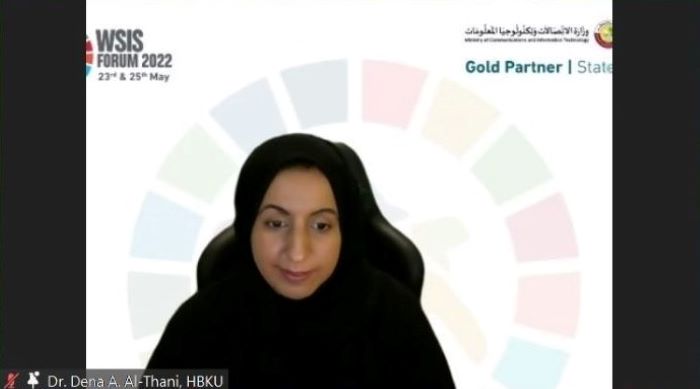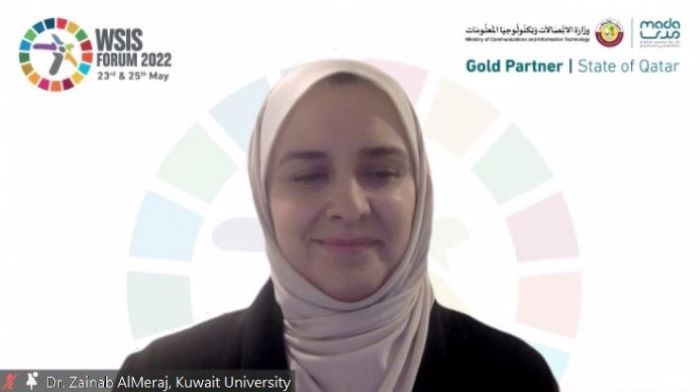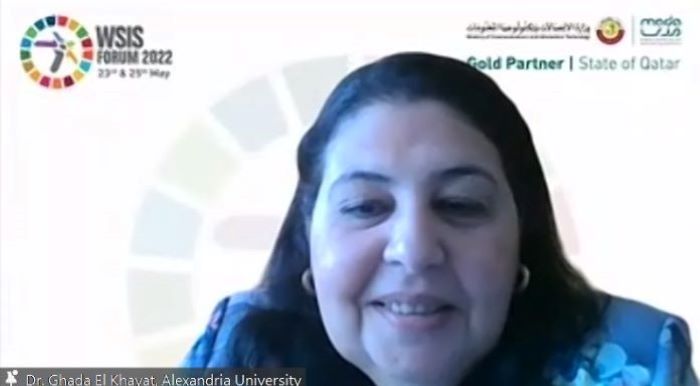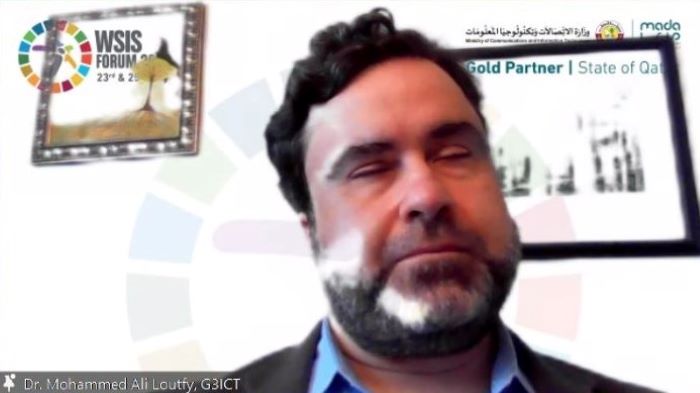ICT Accessibility Capacity Building
Qatar Assistive Technology Center - Mada
Session 380
It is essential that people in the region and beyond, have the required competencies to use and develop universally accessible ICTs, in particular in Arabic language, as well as appropriate assistive technologies, and make it part of their professional practices toward maintaining an inclusive workplace, and bridging the digital divide and making ICTs accessible to every user, so that no one will be left behind.
On this premise, education, training, and long life learning programmes harnessing the power of inclusive ICTs can enable all persons, including those with disabilities, to develop the necessary ICT accessibility relevant competencies for life and work.
Despite the urgent need to expand understanding and awareness about creating accessible content and services, there is still a lack of skills and knowledge of ICT accessibility, as well as integration of ICT accessibility aligned courses in educational institutions and professional development services.
This session will shed light on the importance of awareness-raising and capacity building in the field of ICT accessibility and will focus on stakeholders’ initiatives and efforts toward closing the training and knowledge gap on the topic of ICT accessibility.
The session is targeting the specialists in the fields of ICT accessibility, training and education. Speakers from Arab universities and international Institutions will have the opportunity to discuss and exchange on the subject.
Program
Opening Remarks
Moderator:
Dr. Mohamed Koutheair Khribi, Qatar Assistive Technology Center – Mada
Speakers:
Ms. Aljazi Nasser Al Jabor, Head of ICT Access Accreditation and Training Section, Qatar Assistive Technology Center – Mada
Dr. Dena Al-Thani, Assistant Professor, College of Science and Engineering, Hamad Bin Khalifa University, Qatar
Dr. Hend S. Al-Khalifa, Professor, King Saud University, Kingdom of Saudi Arabia
Dr. Zainab AlMeraj, Faculty member, College of Life Sciences, Kuwait University, Kuwait
Dr. Ghada El Khayat, Professor, Faculty of Commerce, Alexandria University, Egypt
Dr. Mohammed Loutfy, Director of capacity building and advocacy, the Global Initiative on Inclusive ICTs, G3ict
Questions and Answers
Closing Remarks
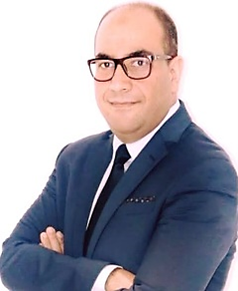
Dr. Mohamed Koutheair KHRIBI is passionate advocate for ICT accessibility, and open education, and inclusive digital education for all. Dr. Khribi has over 20 years’ experience in the inclusive ICT in Education field.
He is currently ICT Access Research Expert at Qatar Assistive Technology centre- Mada.
Dr. Khribi has a successful record of participation in national and international projects in the sector of inclusive ICT in education with various roles and capacities. He worked at the Arab League Educational, Cultural and Scientific Organization (ALECSO) as Programme Specialist, where he led and coordinated several projects in the Arab region, related mainly to the ICT in education field, namely, Open Education, Digital Inclusive Education, OER, MOOCs, ICT-CFT contextualization, Smart Learning, Digital Accessibility, etc. in close cooperation with regional and international organizations as well as local authorities and Ministries. He’d been also collaborating with ALECSO and UNESCO organizations as an individual specialist, to implement several projects in Arab and African countries.
Dr. Khribi participated in the establishment of the Virtual University of Tunis in 2002 where he served as head of the ICT department. He served also as head of the Online Education Department at the University of Kairouan in Tunisia. He worked as assistant professor and researcher at the university of Manouba, the university of Kairouan and the university of Tunis in Tunisia. Dr. Khribi is a Fulbright Alumnus, He attended the Knowledge Discovery and Web Mining Lab at the University of Louisville in the USA as a Fulbright visiting scholar. He is senior member of L@tice laboratory at the University of Tunis, and IEEE member, and program committee member in several conferences and journals. His research interests include Digital accessibility, Personalized Technology Enhanced Learning, Inclusive digital education, Educational Recommender Systems, Open Educational Resources, Machine Learning. He has authored several well-cited publications in scientific books, journals, and conferences.
Hold a bachelor's degree in management information system from Drexel University in Philadelphia and a Master of Science in Data Science and Engineering from Hamad Bin Khalifa University in Qatar. She believes in transforming all digital platforms to be fully accessible by every individual in the community, including people with disabilities and the elderly.
She entered the world of Information and Communication Technology Accessibility back in 2017, where she was introduced to all techniques and methods to ensure the accessibility of different digital platforms and the significant impact on people with disabilities and the elderly.
By entering the field, she learned how and why we should enhance all platforms to grantee full access by the whole community.

She is also a member of the World Health Organisation (WHO) Technical Advisory Group on Assistive Technology. Dr. Dena is a member in the Arab ICT Accessibility Expert at Mada (Qatar Assistive Technology Center). She received her MS (Hons.) degree in Software Engineering and PhD in Computer Science from the University of London. Dr. Dena is keen to see the impact of her research on human-computer interaction, inclusive design and assistive technology in Qatar and around the world. Her research work is being published and presented in prestigious scientific journals and international conferences. Dr. Dina is currently leading a number of research grants in digital access, inclusive design and assistive technology.
Hend S. Al-Khalifa is a full Professor with the Information Technology Department, King Saud University and the head of iWAN research group. She is also an inventor, entrepreneur and a prolific researcher with an H-index of 33 and a publication record of over 170 research papers in workshops, international conferences and high-impact ISI journals. Hend has been a principal investigator and co-investigator on over 10 research grants. She also serves as a member of the Editorial Board of journal of King Saud University - Computer and Information Sciences (Q1 journal) (since 2012) and a program committee member of many national and international NLP conferences including NAACL-HLT, EMNLP, WANLP, ACLing, and OSACT. Prof. Al-Khalifa's research interests include Arabic NLP, Semantic Web, HCI and computers for people with special needs
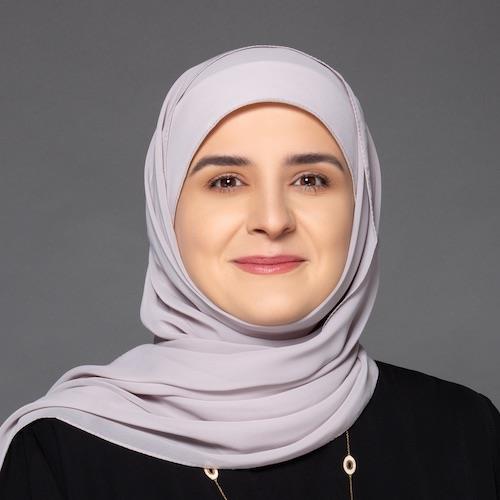
Zainab AlMeraj is a faculty member at the Information Science Department at the College of Life Sciences, Kuwait University; She serves as a national representative of Kuwait in the National Diwan for Human Rights in the committee of people with disabilities and as a country representative of Kuwait for the G3ICT international initiative Smart Cities for All. She is also an expert member of the committee Authorized Arabic Translation of WCAG 2.1 Accessibility guideline led by MADA, Qatar. She works on awareness and embedding digital accessibility and usability best practices into organizations across sectors and reports advances under the national human rights directive and through her academic publications. AlMeraj is a certified professional in usability and accessibility and uses this experience to advocate for digital accessibility and inclusion of persons with disabilities on the non-government organizations, government, academic and entrepreneurial levels.
Since 2014, AlMeraj has worked on preparing shadow reports for the UN OHCHR on four of the nine conventions signed by the State of Kuwait on human rights concerning women, children, domestic workers, illegal residents and people with disabilities. Dr. AlMeraj has continuously devoted her professional, volunteer and social career for technical skill advancement, youth empowerment, awareness, advocacy via multiple grassroots initiatives she leads and implementation of human rights and social justice on the individual, organizational and social policy levels.
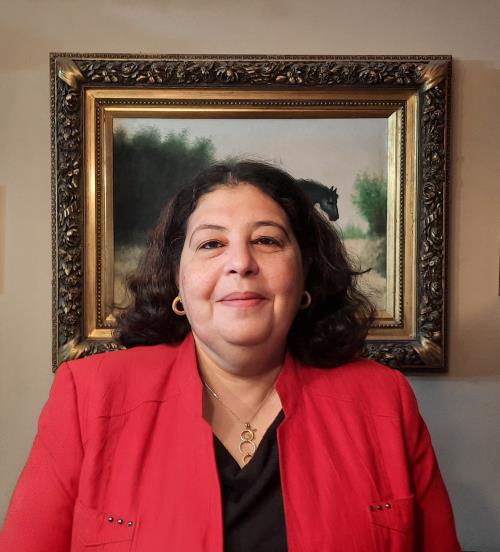
Dr. Ghada El Khayat is a Full Professor and the Chairperson of the Information Systems and Computers Department at the Faculty of Commerce, Alexandria University. Dr. El Khayat has worked, full time, in different international big projects where she had both technical tasks involving the implementation and testing of new systems and project management tasks involving planning, cost estimating and cost control.
Dr. El Khayat has supervised over 50 graduation projects in Faculties of Commerce and Engineering. She also supervised research for over 20 Ph.D. and Master’s students. Dr. El Khayat has published over 40 papers in peer reviewed conferences and journals in addition to a couple of book chapters published internationally. She is the principal investigator (PI) of a number of research projects of Alexandria University. She is the Director of the “Pedagogical Innovation and Distance Learning Center, Alexandria University and a regional expert of the “Agence Universitaire de la Francophonie-AUF” in areas of Information Technology and Digital Learning.
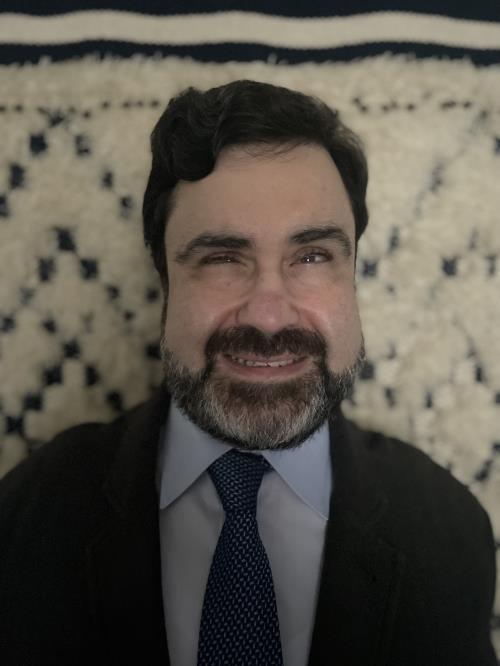
Dr. Loutfy Is the Global Initiative on Inclusive ICTs (G3ICT) director on capacity building and advocacy.
In February of 2020, Dr. Loutfy was appointed as Disabled People’s International (DPI) executive director. Since 2016, dr. Loutfy has been the Representative of Disabled Peoples International (DPI) at the United Nations, where he currently co-chairs the Stakeholder Group of Persons with Disabilities to the High-Level Political Forum (HLPF) on the Sustainable Development Goals (SDGs).
Between 2014, and 2020, Dr. Loutfy served as a co-founder and Executive Director of the Arab Forum for the Rights of Persons with Disabilities. He also led the Global Campaign on World Bank Safeguards and Disability between 2011 and 2014.
Dr. Loutfy has worked as a consultant for a broad array of organizations, including: The National Democratic Institute (NDI); the Bank Information Center (BIC), and the World Blind Union (WBU).
In Fall 2019, Mohammed earned his Ph.D. in Anthropology from the American University of Washington, DC. In 2009 and as a Fulbright Scholar, Mohammed had earned his master’s degree in International Development, also from the American University in Washington DC. In 2001, Mohammed earned his degree in Public Law from the Lebanese University in Beirut.
-
 C3. Access to information and knowledge
C3. Access to information and knowledge
-
 C4. Capacity building
C4. Capacity building
-
 C6. Enabling environment
C6. Enabling environment
-
 C7. ICT applications: benefits in all aspects of life — E-learning
C7. ICT applications: benefits in all aspects of life — E-learning
-
 Goal 4: Ensure inclusive and equitable quality education and promote lifelong learning opportunities for all
Goal 4: Ensure inclusive and equitable quality education and promote lifelong learning opportunities for all
-
 Goal 11: Make cities inclusive, safe, resilient and sustainable
Goal 11: Make cities inclusive, safe, resilient and sustainable
Instagram: @MadaCenterQatar
Twitter: @MadaCenterQatar
Facebook:@MadaCenterQatar
LinkedIn: @MadaCenterQatar
